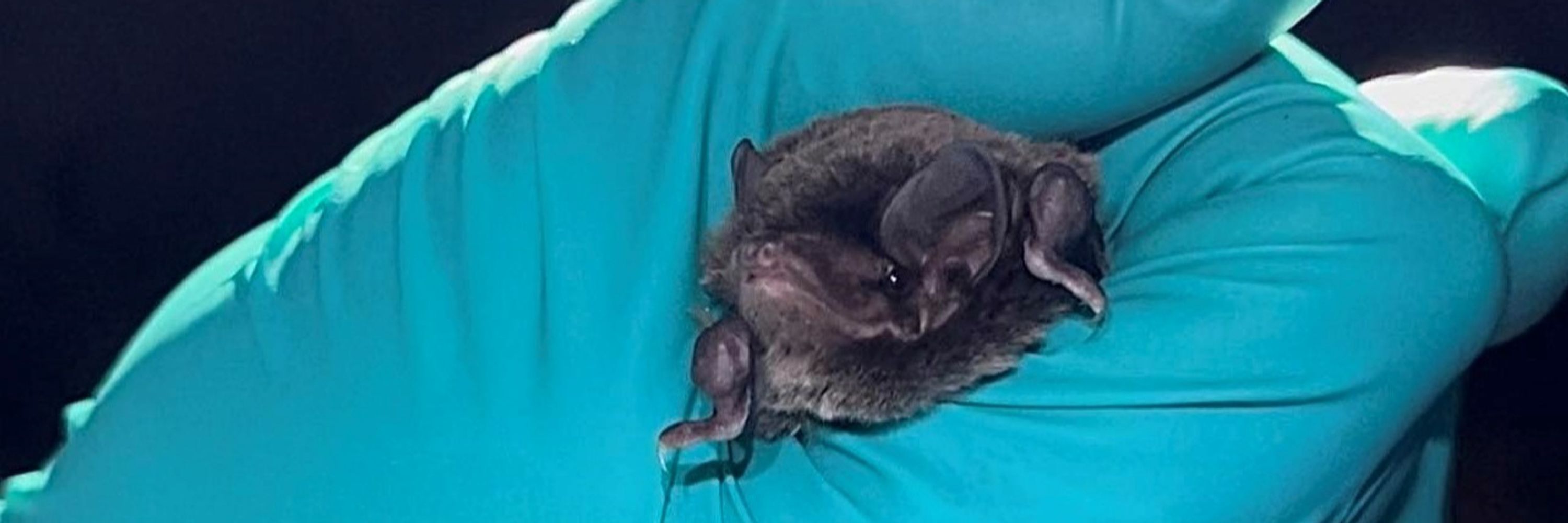
Anna Langguth
@alangguth.bsky.social
Veterinarian, wildlife immunologist, bat-aficionado.
Finished processing all 776 blood slides made throughout my PhD🥳
Samples were collected from southern and eastern bent-winged bats (Miniopterus orianae bassanii and oceanensis) since May 2023 and will be used to learn more about seasonal variation in immune parameters in these species~
Samples were collected from southern and eastern bent-winged bats (Miniopterus orianae bassanii and oceanensis) since May 2023 and will be used to learn more about seasonal variation in immune parameters in these species~


September 21, 2025 at 11:13 PM
Finished processing all 776 blood slides made throughout my PhD🥳
Samples were collected from southern and eastern bent-winged bats (Miniopterus orianae bassanii and oceanensis) since May 2023 and will be used to learn more about seasonal variation in immune parameters in these species~
Samples were collected from southern and eastern bent-winged bats (Miniopterus orianae bassanii and oceanensis) since May 2023 and will be used to learn more about seasonal variation in immune parameters in these species~
Very excited to be able to present a summary of my PhD research at the #ibrc2025
My research on the immune systems of Australian bats at risk of white-nose syndrome suggests our native species may be vulnerable to this devastating pathogen - as always, more research is needed!
My research on the immune systems of Australian bats at risk of white-nose syndrome suggests our native species may be vulnerable to this devastating pathogen - as always, more research is needed!

August 5, 2025 at 1:21 AM
Very excited to be able to present a summary of my PhD research at the #ibrc2025
My research on the immune systems of Australian bats at risk of white-nose syndrome suggests our native species may be vulnerable to this devastating pathogen - as always, more research is needed!
My research on the immune systems of Australian bats at risk of white-nose syndrome suggests our native species may be vulnerable to this devastating pathogen - as always, more research is needed!
Tagged along for a short survey of a potential bat roost with German colleagues (Competence Center for Bat Conservation Saxony-Anhalt) in southern Harz yesterday.
Came across a brown long-eared bat (Plecotus auritus), a naturally inquisitive species known for often being first colonisers new roosts.
Came across a brown long-eared bat (Plecotus auritus), a naturally inquisitive species known for often being first colonisers new roosts.

January 30, 2025 at 12:12 PM
Tagged along for a short survey of a potential bat roost with German colleagues (Competence Center for Bat Conservation Saxony-Anhalt) in southern Harz yesterday.
Came across a brown long-eared bat (Plecotus auritus), a naturally inquisitive species known for often being first colonisers new roosts.
Came across a brown long-eared bat (Plecotus auritus), a naturally inquisitive species known for often being first colonisers new roosts.
Looking forward to an exciting few weeks working with Gábor Czirjak's lab in Berlin!
We'll be testing the response of Australian and German bat wing fibroblasts to Pseudogymnoascus destructans, the fungus causing White Nose Syndrome. 🦇🍄
We'll be testing the response of Australian and German bat wing fibroblasts to Pseudogymnoascus destructans, the fungus causing White Nose Syndrome. 🦇🍄


January 16, 2025 at 6:09 PM
Looking forward to an exciting few weeks working with Gábor Czirjak's lab in Berlin!
We'll be testing the response of Australian and German bat wing fibroblasts to Pseudogymnoascus destructans, the fungus causing White Nose Syndrome. 🦇🍄
We'll be testing the response of Australian and German bat wing fibroblasts to Pseudogymnoascus destructans, the fungus causing White Nose Syndrome. 🦇🍄

